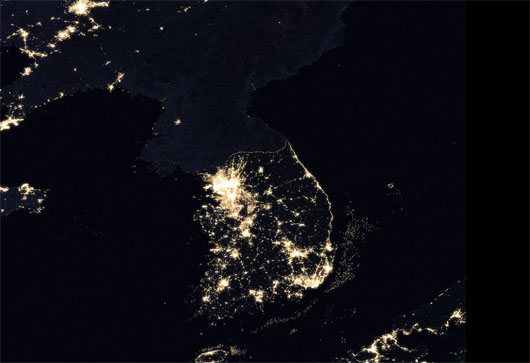Special to WorldTribune.com
In a scathing but measured account, a report by the UN”s Special Rapporteur on the human rights situation in the Democratic People’s Republic of Korea (DPRK) produced an update on North Korea. The annual survey drills down on the DPRK’s continuing practices of forced labor, a void for civil and political rights, and a dangerous lack of transparency concerning the state of the COVID-19 virus in the communist country.

The survey admits candidly, “The human rights situation in the Democratic People’s Republic of Korea remains extremely serious and shows no sign of improvement or progress in advancing justice and accountability for human rights violations.” Yet concerning COVID it concedes, “to date, no cases of coronavirus disease (COVID-19) have been officially confirmed in the Democratic People’s Republic of Korea. The authorities are continuing their preventative actions, including by imposing strict border controls.”
In North Korea, the report asserts that 48 per cent of the total population, 12.2 million people, were undernourished in the period from 2016 to 2018. By 2019, “40 per cent of the population, were already living with food insecurity and in urgent need of food.”
In fact while current harvests are thought to be near the dangerously low farm production numbers of 1994, the survey cautions that, “As a result of the pervasive discrimination in the public distribution system, ordinary citizens, including farmers, do not receive rations.”
Moreover, the country is plagued by widespread tuberculosis which makes people particularly vulnerable to the COVID virus. It adds, “While the scale of the pandemic within the country is still unknown, the limited capacity of the health facilities is a concern.”
Not surprisingly the human rights monitor is blocked from visiting the quaintly title Democratic People’s Republic of Korea. Contrary to past surveys the report did not cite religious repression or a state-controlled media.
The Special Rapporteur warns, “The secrecy surrounding the political prison camps kwanliso is particularly concerning.” While thousands suffer for often minor political infractions in appalling conditions, the report doesn’t cite numbers as in the past where estimates stood near 200,000 inmates. In North Korea “thousands of people who have committed “anti-State” and “anti-people” crimes are imprisoned indefinitely in kwanliso, the political prison camps.”
The document underscores, “the labour system controlled by the Workers’ Party of Korea, based on the policy and practice of State ownership, central planning and the juche ideology of economic self-sufficiency, determines the entire life of the people in the Democratic People’s Republic of Korea…Article 4 of the Socialist Labour Law states that under socialism, every citizen is duty bound to participate in labour.” The juche ideology, devised by North Korea’s first Supreme Leader Kim Il-Sung, remains a mainstay of regime self-reliance.
The Report adds, “People in the Democratic People’s Republic of Korea have to routinely provide unpaid compulsory labour for State projects through mobilization by the Workers’ Party of Korea.”
The document concedes “Surveillance and control over the population continue in the Democratic People’s Republic of Korea, and the decreased contact with the outside world during the COVID-19 pandemic could exacerbate entrenched human rights violations, with more freedoms being restricted, and discrimination and treatment in detention, including in political prison camps, worsening.”
Yet while calling for more oneness and transparency on humanitarian grounds the Special Rapporteur makes a number of key but overlooked observations. In the case of neighboring South Korea the survey stresses, “Integrate human rights into negotiations with the Democratic People’s Republic of Korea” as well as “Ensure that a human rights-based framework is integrated into possible economic and humanitarian cooperation.” This remains a key concern.
Significantly the Seoul government has not seriously woven human rights assistance for their ethnic Korean family in the North into policy, nor has South Korea been welcoming enough to the relatively small numbers of escaped North Koreans who fled to the South.
In recent years the United States has stepped up its human rights focus on the DPRK regime but should do more in pressing for transparency in human rights cases. Yet since 2017, Kim Jong-Un’s regime has been on best behavior not having tested nuclear weapons nor long range missiles since the Trump Administration checkmated their ambitions with military deterrence and diplomacy thus averting a war. How long will this curious political limbo continue?
Kim Jong-Un’s dystopian regime, seeking attention and a crisis mode, may soon confront whoever wins the White House in Washington with a renewed North Korean security crisis. Be careful taking the bait!
John J. Metzler is a United Nations correspondent covering diplomatic and defense issues. He is the author of Divided Dynamism the Diplomacy of Separated Nations: Germany, Korea, China (2014). [See pre-2011 Archives]

 By
By